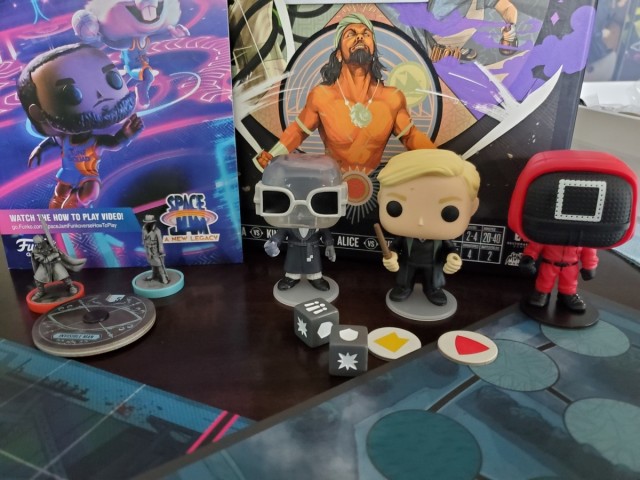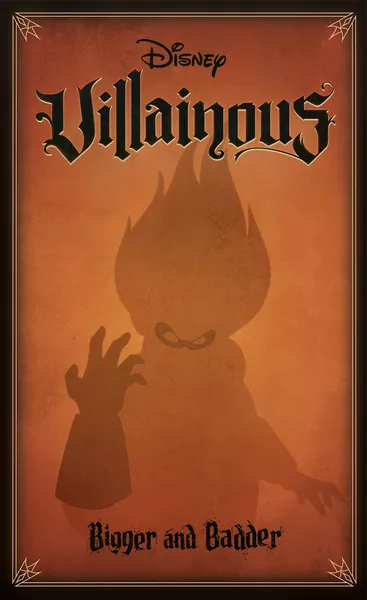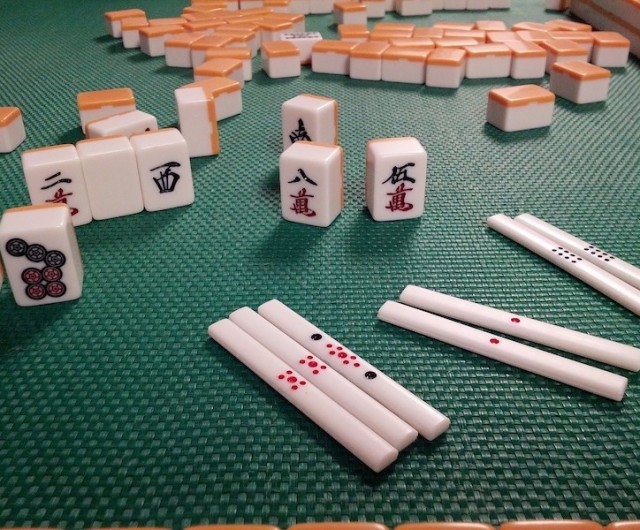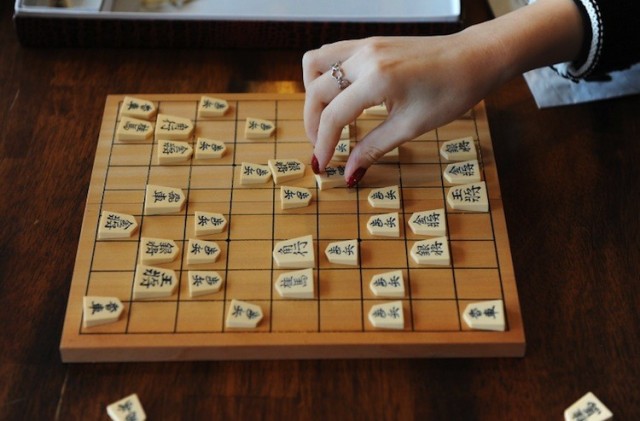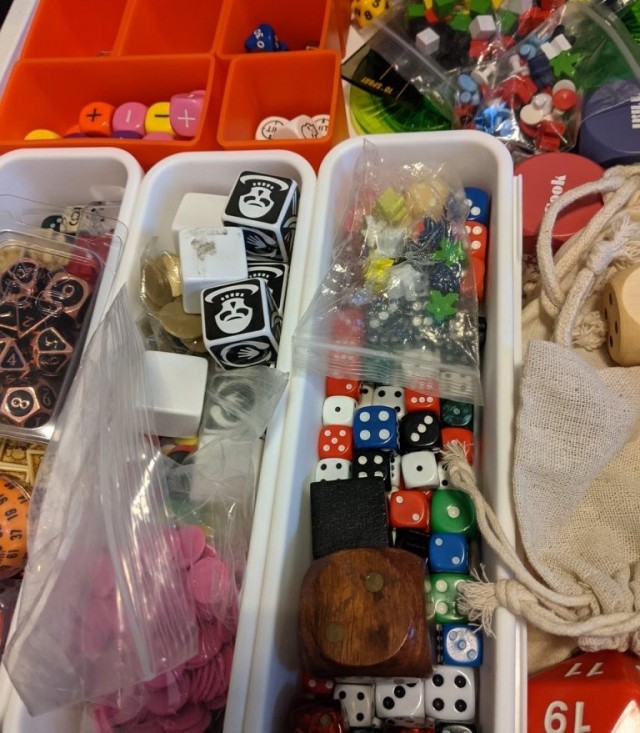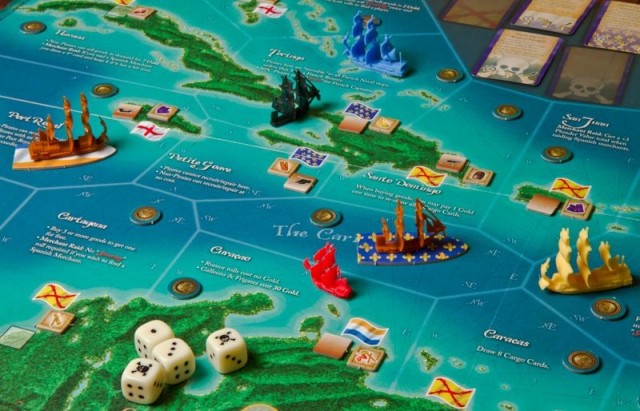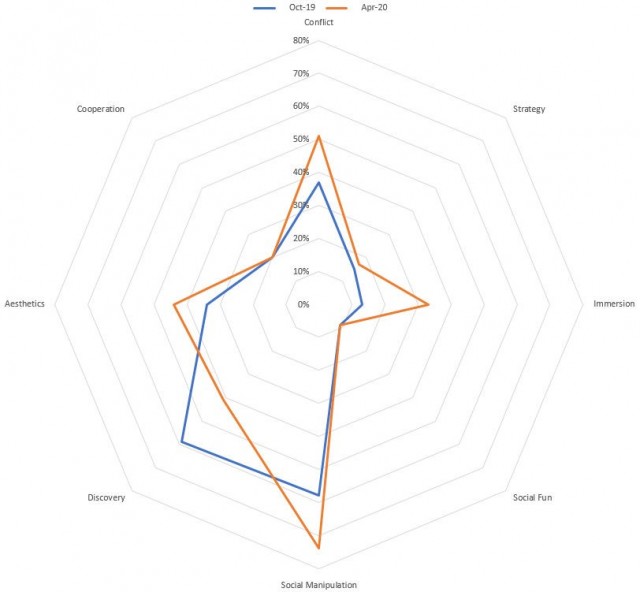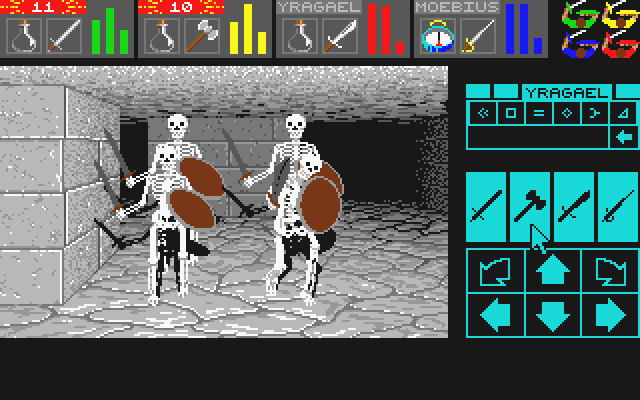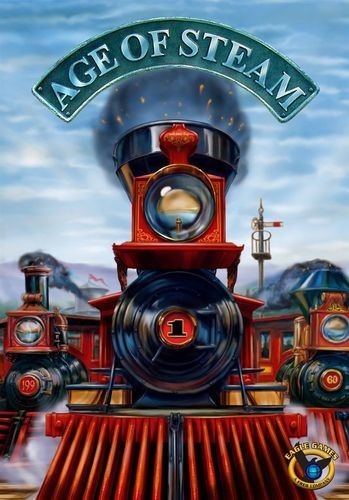 A couple of weeks ago I got the chance to play Ghost Stories for the first time. It was okay. I certainly
enjoyed the few games I played although I'd say it has some question marks over its long term appeal. But for some
obscure reason it triggered off a chain of thought in my head as regards the process of choosing, buying and playing new
games. I'm not yet entirely convinced that all the steps in this particular chain are actually as directly connected as
they look, squatting as they are right now in my head like stars in the firmament: hopefully by writing them down we'll
see whether or not the dots join up. But in the meantime, be prepared for a possibly confusing ride.
A couple of weeks ago I got the chance to play Ghost Stories for the first time. It was okay. I certainly
enjoyed the few games I played although I'd say it has some question marks over its long term appeal. But for some
obscure reason it triggered off a chain of thought in my head as regards the process of choosing, buying and playing new
games. I'm not yet entirely convinced that all the steps in this particular chain are actually as directly connected as
they look, squatting as they are right now in my head like stars in the firmament: hopefully by writing them down we'll
see whether or not the dots join up. But in the meantime, be prepared for a possibly confusing ride.
It started like this. Regular readers will be well aware that I don't much like co-op games but I stand in a minority on that so we'll flag it up and move on. A big part of the reason I don't like co-op games is because of my experiences playing Knizia's Lord of the Rings which I felt was a shallow, tedious game, quite transparently a logic puzzle dressed up with a board and which was liable to be ruined by "loudest player syndrome" thus rendering it about as far from a co-operative experience as you could get. I was, however, tempted to buy and play Arkham Horror as a solo game and having done so I discovered that much of what I'd predicted about the best way to design the ultimate co-op game was in fact correct and that AH did a pretty good job of sidestepping all that co-op baggage and has gone on to become one of my favourite games.
But what has all this got to do with anything in particular, you might well ask? Bear with me. I told you it might be disjointed.
What interested me about this was how the sequence of events lead up to my appraisal of Ghost Stories. Had I not played Lord of the Rings as my first co-op it's entirely possible that I'd have been more open minded toward them in general. I might have looked at Ghost Stories earlier. Since it makes some effort in presenting a setup which discourages "loudest player syndrome" it might have been that I really enjoyed the game but as it is I played and formed an opinion of the game holding at the back of my mind the ridiculous ease with which a determined player with this problem can completely ruin any co-op game. Had I not bought and played Arkham Horror previously to Ghost Stories it's possible that I would have been bowled over by the latter game and bought it and put in in my collection to fill the exact niche that AH currently occupies therein. To cut a long story short, my opinion that Ghost Stories is, well, an average, okay sort of game might have been very different had my wider experience of games been only slightly different.
This in turn made me reflect on what it is that actually drives people to choose and play a game. I make quite a thing about it personally. I have a long list of games that interest me and my usual course of action is to wait six to twelve months after release, read a whole lot of reviews and other comments on the game, and then make a final decision. I put a lot of effort into it, and yet I still buy a lot of games that sit around unplayed. Perhaps more to the point is what process do I use to decide what games make it on to the "of interest" list in the first place? Often theme is a big decider for me, but so are comparisons to other games that I know and like and I also pay attention to new releases from designers and publishers that have delivered good product before. But if I went on those alone I'd never have played Twilight Struggle which was introduced to me by a friend and which has gone on to be my most-played game ever (~50 sessions, and I'm still loving it, and I'm still utterly crap at the game). Conversely I have no intention of going near Android in spite of it ticking all those boxes because I'm far from convinced that yet another long, complex social game in my collection is ever going to see any table time.
In truth though, all this stuff about my carefully analysing which games to try and to buy is, I suspect, nonsense. Last month I bought three games that had only been orbiting round the outsides of my "of interest" list all because I found copies at very cheap rates and I was unable to resist a bargain. I bought a copy of Traders of Genoa because I thought it would be the ideal game to play with someone I see once in a blue moon, and last time I did see him we ended up getting drunk and playing Pitchcar instead. I bought Napoleons Triumph because I thought it looked beautiful. I bought Santiago just because it seemed to have become increasingly rare in the UK and I actually managed to find a copy. I own several unplayed games about dinosaurs because I've been fascinated by dinosaurs since I was a small child. In other words the reality is that more often than not, I buy on a whim. And more often than not it turns out that the physical copy of the game remains unplayed, even if I play it online.
This realisation has left me keenly interested in what it is that actually makes gamers choose and buy games. It's an important point because the market has become semi-saturated with crap, and because all of us who regard ourselves as primarily gamers as opposed to primarily game collectors (I think every gamer is at least a little bit of both) seem to be going round saying we own too many unplayed games. I find the idea that I might very easily have missed out on playing something as mouth-wateringly tasty as Twilight Struggle mortifying because it makes me worry about what other truly great games I might be passing by - might Android for example be the absolute epitome of my gaming desire? I don't have an answer because I suspect the reality is extremely complex - it's part careful analysis, part clever marketing, part desire to collect and accumulate. There's also a big element of how a game measures up to your desired self-image: I like to think of myself as someone fairly knowledgeable about military history, for example. Therefore I have a tendency to buy and keep wargames which often get left unplayed face-to-face because most of my regular gaming cronies have no interest in militaria at all. And in truth I find the overly-complex simulation angle and lack of social aspects in of a lot of wargame uninspiring. Yet I keep accumulating them (and I do play them by E-mail) because they make me feel more like the wargamer I think I ought to be. I'd be interested to know what it is that makes all of you choose which games to buy and which games to leave.
But to come back to Ghost Stories and try and weave all these loose ends together. My eventual conclusion after all this rumination is that comparing the quality of different games in your collection, something gamers of all stripes like to do - indeed seem to do almost instinctively - is actually a waste of time. How much you like a game is a function of many different factors: what games you've played before, your mood at the time you first played the game, the people you were playing it with, what you think your participation in or ownership of the game says about you. Given this heady mixture, I don't think any of us can realistically trust a recommendation or a rating from any other gamer.
If this were true it would apparently leave us in a rather parlous state of affairs where picking games at random is as good a way of finding the wheat among the chaff as any other. But there is one further thing which I've yet to discuss and which, in fact, I've often rubbished as being a sensible way to pick games. It seems to me, on reflection, that buying on simple gut instinct is often as good a guide as any. I ignored Twilight Imperium for a long time because the sensible part of me knew it'd never see the table as it was too complex, and too long, even though my gut instinct was that it was a game I'd love. And when I eventually gave in to the devil on my shoulder and bought it, I made damn sure I had time to play it and I did love it. On the other hand I've put down cash for a number of Euros which I hated, and had reservations about buying, just because I thought I ought to like them, because people I respected also liked them. Maybe Ubarose was right: impulse buying on the box cover alone isn't such a bad idea.
 Games
Games How to resolve AdBlock issue?
How to resolve AdBlock issue? 